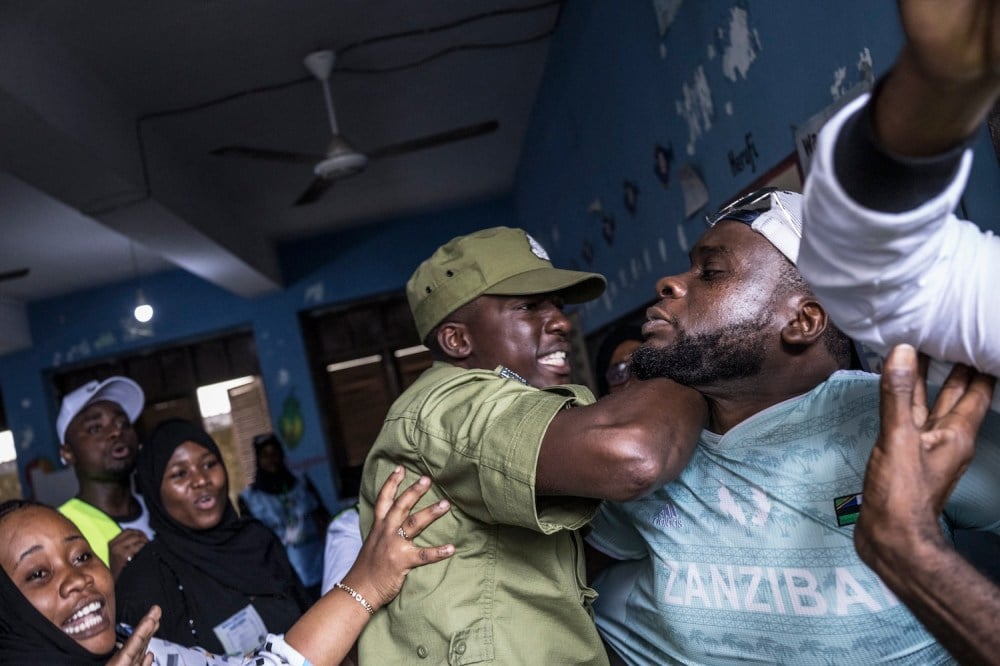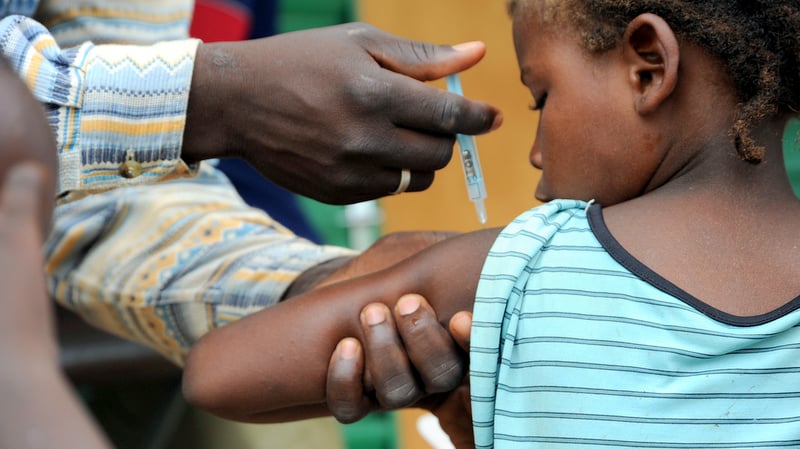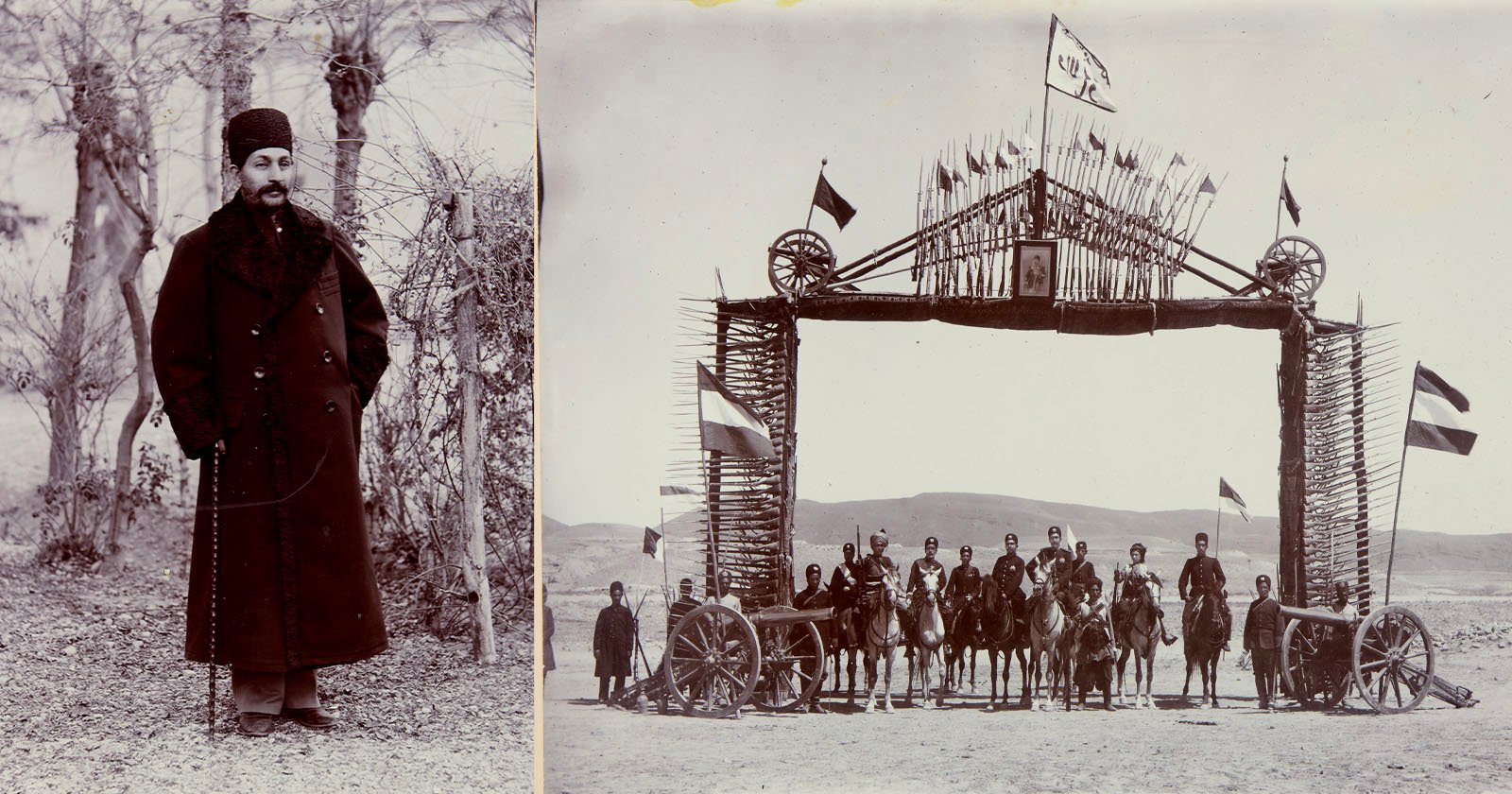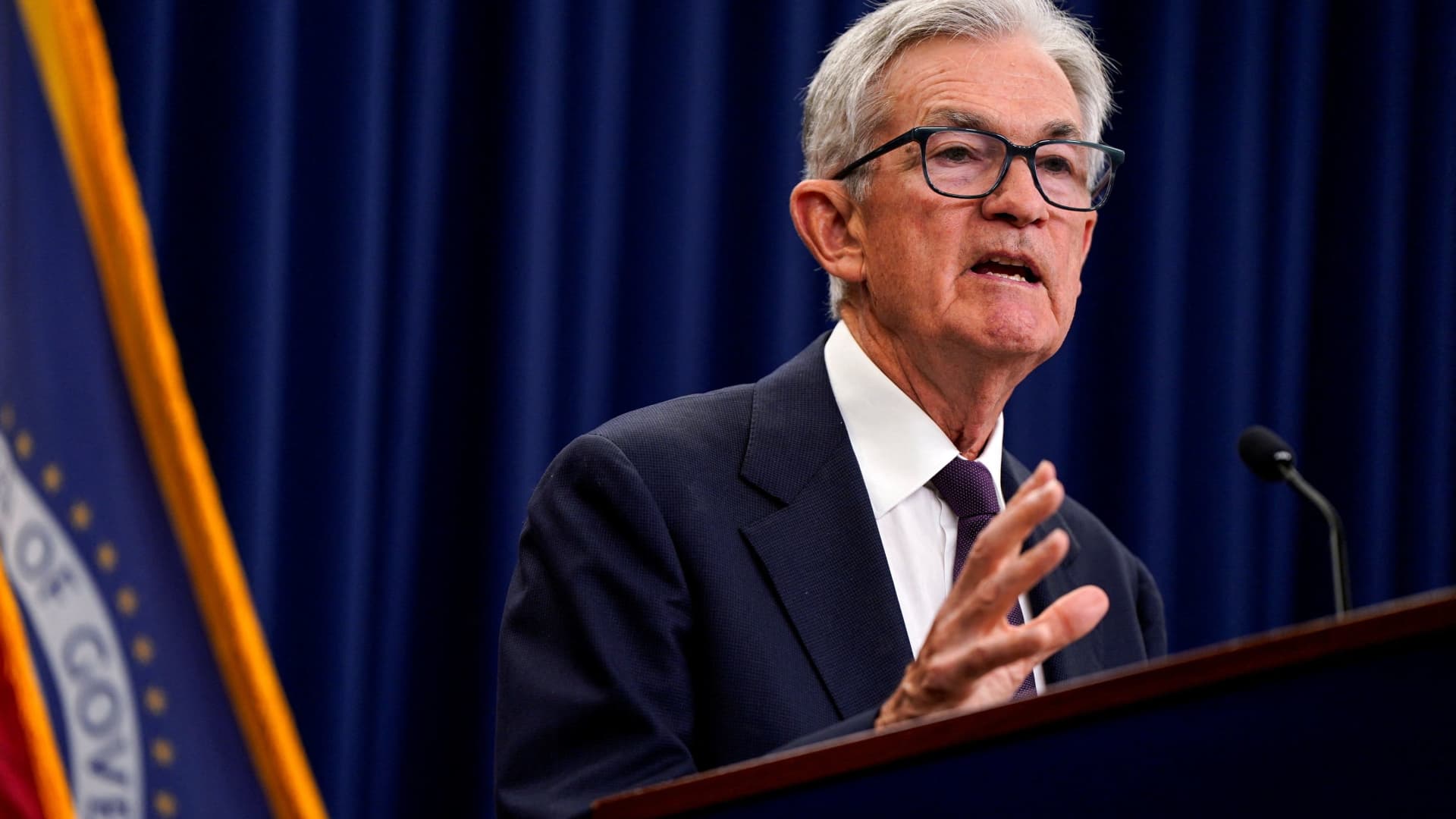Copyright Foreign Policy

Welcome to Foreign Policy’s Africa Brief. The highlights this week: Tanzanians head to the polls under an increasingly repressive regime, Cameroon and Ivory Coast crack down on postelection protests, and the Sudanese city of El Fasher falls to the Rapid Support Forces. Tanzania’s Vote Marked by Repression Violent protests have broken out in Dar es Salaam, Tanzania’s largest city, as polling stations opened on Wednesday for the country’s general election. According to rights groups, Tanzania has become increasingly authoritarian as President Samia Suluhu Hassan has tightened her grip on control to ensure victory. After Hassan replaced President John Magufuli following his sudden death in March 2021, many analysts believed that her tenure would mark a break from his authoritarian regime, especially as she reversed bans on opposition rallies and newspapers critical of Magufuli. But now, some analysts and critics consider Hassan to be worse than the autocrat she replaced. In the past couple of years, Hassan’s critics have faced brutal killings, abduction, and rape in what Amnesty International has described as a “wave of terror.” Between January 2024 and October 2025, the rights group said it documented “enforced disappearances, arbitrary arrests, torture, unlawful killings, and severe restrictions on freedoms of movement, expression, and peaceful assembly.” Hassan will effectively be running unopposed. Tundu Lissu, the chair of Chadema, Tanzania’s main opposition party, has been detained since April, when he was charged with treason for pushing for electoral reform. Lissu has argued that elections cannot be free or fair when Hassan directly appoints members of the country’s electoral commission. Chadema’s deputy chair, John Heche, was temporarily detained last week while trying to attend Lissu’s trial, which began in early October. Meanwhile, in September, Tanzania’s electoral commission disqualified another major presidential candidate, Luhaga Mpina—a former government minister-turned-critic from the second-largest opposition party, ACT-Wazalendo. Behind the scenes, Hassan’s repression could be driven in part by her desire to rein in critics within her own Chama Cha Mapinduzi (CCM) party, the second-longest ruling party in Africa. CCM and its predecessor have held power since Tanzania’s independence from Britain in 1961. “She sees this as necessary to cement her rule in a patriarchal society,” one former advisor told AFP. “She knew that the government she inherited was deeply against her and deeply misogynist.” Hassan’s supporters point to increased tourism and steady economic growth during her tenure. Hassan is looking to transform Tanzania from a lower-middle-income to an upper-middle-income economy. Her government recently secured a $1.4 billion deal with China to refurbish the Tazara railway connecting Tanzania and Zambia, which will quadruple the line’s capacity, increase critical minerals revenue for landlocked Zambia’s Copperbelt region, and open up new trade opportunities with Beijing. Tanzania has also ramped up production of new offshore natural gas reserves in a $42 billion project backed by foreign investors. Tanzania’s trajectory follows a broader trend of rising authoritarianism and violent crackdowns on dissent in Africa, which have helped fuel protests across the continent, including in Cameroon, Kenya, Madagascar, Morocco, Nigeria, and Tunisia. Young Africans are increasingly fed up with their voices going unheard, especially as they face high unemployment rates and elections that are effectively predetermined. “There is no election in Tanzania,” Deogratias Munishi, Chadema’s foreign affairs secretary, told Citizen TV Kenya. “If I may sum up properly, it is a coronation ceremony.” The Week Ahead Wednesday, Oct. 29: Tanzania holds a general election. Thursday, Oct. 30: The United Nations Security Council adopts a new mandate for its peacekeeping mission in Western Sahara. Tuesday, Nov. 11: The Museum of West African Art opens in Benin City, Nigeria. What We’re Watching Protest crackdowns. Protests have continued to rack Cameroon since election results were announced on Monday, declaring 92-year-old President Paul Biya—the world’s longest-ruling leader—the winner of an eighth term in office. At least four people were killed and dozens arrested in demonstrations over the weekend. Ivory Coast similarly saw discontent following a ballot on Saturday that handed 83-year-old President Alassane Ouattara a fourth term. Ouattara’s strongest challengers, former Credit Suisse chief executive Tidjane Thiam and former President Laurent Gbagbo, were barred from running. Gbagbo denounced the election as a “civilian coup.” Ivorian presidents are limited to two terms in office, but Ouattara has argued that his term limits were reset when he changed the constitution in 2016. This month, government authorities arrested hundreds of people protesting Ouattara running for a fourth term. RSF takes major city. El Fasher, the capital of Sudan’s North Darfur state, fell to the paramilitary Rapid Support Forces (RSF) on Sunday. Sudan’s army has since confirmed that it has withdrawn from the city, its last stronghold in the country’s west. Around 250,000 people have been trapped in El Fasher since the RSF laid siege to the city 18 months ago. As the RSF gains ground, the U.N. has warned of worsening ethnic cleansing against non-Arabs. Satellite imagery collected on Monday by Yale University’s Humanitarian Research Lab found evidence of the RSF conducting mass killings of civilians in El Fasher in systematic house-to-house attacks. Zuma legal fees. A South African high court has ordered former South African President Jacob Zuma to pay back around $1.6 million in legal fees covered by state funds during his numerous private litigations concerning charges of corruption, tax evasion, and money laundering. Zuma previously served two months of a 15-month prison sentence in 2021 for contempt of court after defying an order to testify in a state corruption inquiry. Zuma’s scandal-ridden legacy has tainted his former party, the African National Congress (ANC), and worsened its reputation for corruption. His newfound support for rival party uMkhonto weSizwe has further eroded the ANC’s voter base. Trump-style migrant deal. Uganda has finalized a deal to begin hosting asylum-seekers deported by the Netherlands starting next year. The agreement, which the Dutch far-right coalition government first floated in 2024, was initially struck last month on the sidelines of the U.N. General Assembly in New York. Uganda will act as a “transit hub” for primarily African migrants before they are eventually deported to their countries of origin. Kampala signed a similar deal with Washington in August. The Dutch migrant deal is expected to face legal pushback from domestic rights groups. Uganda is Africa’s largest refugee-hosting country. It shelters more than 1.7 million refugees and asylum-seekers, most of whom fled conflicts in neighboring South Sudan and the Democratic Republic of the Congo. Many of the country’s refugee camps are located in remote areas and are affected by extreme climate, including drought and flooding. Critics argue that Uganda’s open-door refugee policy has led to global powers looking the other way on President Yoweri Museveni’s repressive regime and anti-LGBTQ laws. Museveni is seeking to extend his nearly 40-year rule in upcoming elections in January. This Week in Culture The end of October kick-starts a series of year-end annual arts and culture events across West Africa, when members of the diaspora traditionally return home for seasonal holidays and celebrations. This year’s festivals come as the continent’s art and music scenes have thrived in recent years, driven by a surge in international interest that has helped contribute to the establishment of new galleries, residencies, and artist studios. In Nigeria, back-to-back events are starting with LagosPhoto Festival, which opened this week, followed by Lagos Fashion Week, Art X Lagos, the Lagos International Theatre Festival, and Lagos Fringe. In Senegal, L’Art dans la Cité will take place across the capital of Dakar from Nov. 28, featuring exhibitions of work by young Senegalese artists, art workshops, and architectural walks. In Ghana, Accra Cultural Week will kick off on Oct. 30. Organized by Gallery 1957, named after the year of Ghana’s independence from Britain, the event will feature work from Ghanaian artists, including Denyse Gawu-Mensah, who superimposes vintage photographs from the 1960s and 1970s onto textiles, evoking the country’s optimism in the post-independence period. The region’s events will culminate in Accra’s two-day AfroFuture festival, previously named Afrochella, set to start on Dec. 28. Last year, more than a million people attended AfroFuture; its popularity reflects the global success of Afrobeats and growing demand for Africa-based music festivals. FP’s Most Read This Week Xi May Have Miscalculated on Rare Earths by Alasdair Phillips-Robins Is the U.S. Ready for War With China? by Franz-Stefan Gady It’s (Still) Henry Kissinger’s World by Julian E. Zelizer What We’re Reading Gold-for-arms trade. Each year, Nigeria loses more than $9 billion to illegal mining, which has partly financed terrorism in the country’s northwest, Lami Sadiq reports for the International Centre for Investigative Reporting. “With competition over the region’s mineral resources, especially gold, contributing to ongoing instability in Mali and Burkina Faso, it not only exposes northern Nigeria to the regional patterns of insecurity but situates Nigeria among key hotspots of violence and arms trafficking, facilitating both importation and domestic production of weapons in West Africa,” Sadiq writes. South Africa’s literary canon. South African Scottish writer Zoë Wicomb died on Oct. 13 at the age of 76. In Africa Is a Country, Lynne Brown and Desiree Lewis recount how her writing probed the complexities of colonization, emigration, and political resistance. Wicomb’s “analysis was often misread,” the authors write. “Some critics mistook her deconstruction of these colonial fictions as a tacit endorsement of them, folding her into the very discursive lineage … that she so precisely challenged.”



